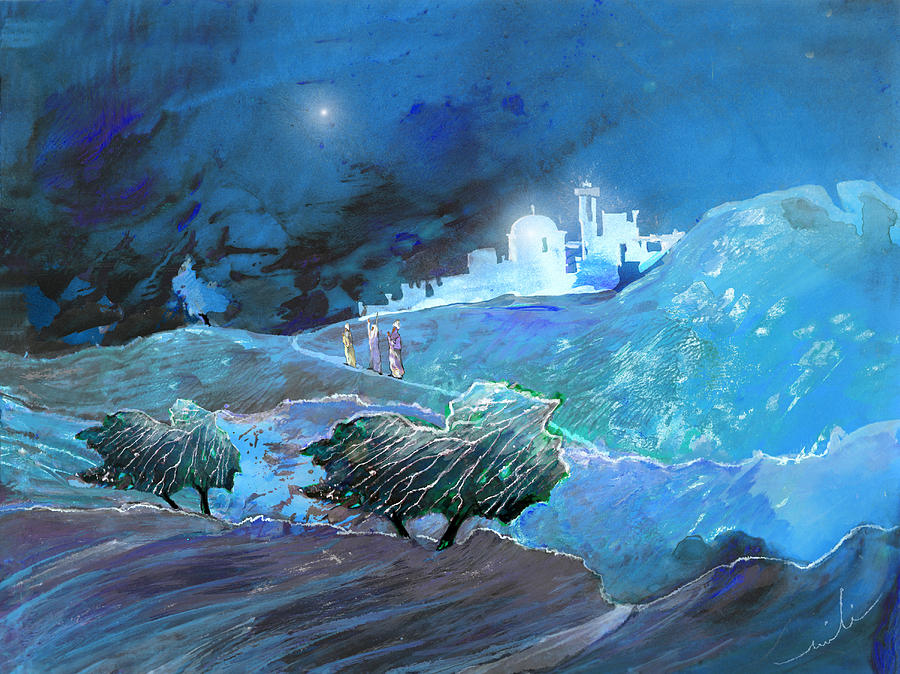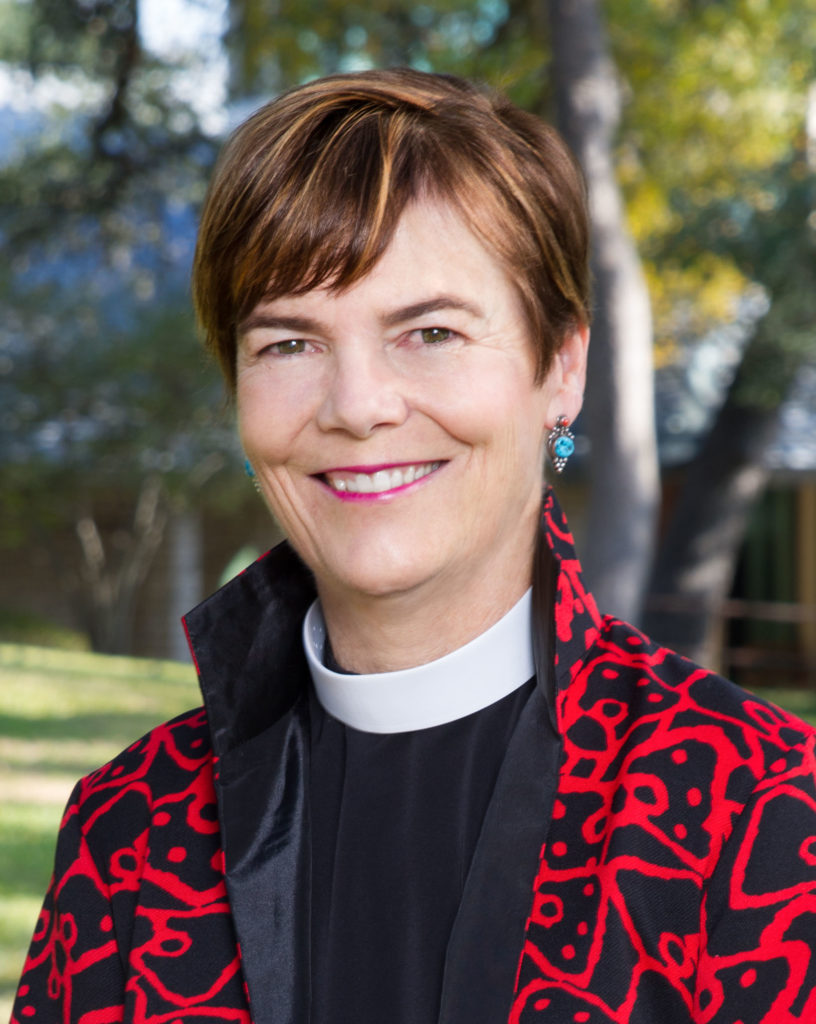
The Sacred and the Profane, by Mircea Eliade, was the first book assigned in Religion 101, my first course at Williams College. I remember that in the opening chapters, Eliade writes about New Year rituals, celebrated by “religious man,” in which the cosmos was recreated and time began again.
“Since the New Year is a re-actualization of the cosmogony, it implies starting time over again at its beginning, that is, restoration of the primordial time, the “pure” time, that existed at the moment of Creation.” (77–78)
I recall the thrill of recognition I felt when reading Eliade. With my passionate imagination, even in the plain liturgy of The Episcopal Church, I had known the experience of “pure” time.
The description in The Sacred and Profane of beginning time again gives insight into the simultaneous celebration of the New Year in January – with all its retrospectives of the year past, predictions about the year to come, personal resolutions, and new commitments – and the Christian season of Epiphany.
Jesus’ birth, his human beginning celebrated at Christmas, blossoms outward in a series of “beginnings” episodes: the arrival of the magi, the baptism, the wedding at Cana, Jesus’ preaching in Nazareth. Each event displays the incarnation of Christ to others: to the Gentiles, to the crowds at the baptism, to the hometown people in Nazareth, to the guests at the wedding.
Images of Epiphany are those of light, making visible – “We have seen his star in the east” – and of speech, making audible – “And a voice came from heaven, saying, You are my Son, the Beloved; with you I am well pleased.” They are images of unfolding and unwrapping – “Then, opening their treasure chests, they offered him gifts of gold, frankincense, and myrrh” – and of unrolling the scroll of the prophet Isaiah. In these weeks we enjoy, savor, and appreciate the experience of Christmas with all our senses.
In the life of the community at Seminary of the Southwest, the new year, the season of Epiphany, begins the spring semester. Academic life resumes with a second beginning after the first beginning of matriculation in the fall. Faculty, staff, and students take a breath, re-gather, and get a second wind for the final lap toward graduation in May. In the ecclesial season, many of our graduates from May of 2018 are being ordained as priests in the bright light of the Epiphany.
As my sabbatical comes to a close, I am beginning again this January 2019. You could call it “re-entry.” I think of it as “re-beginning.”
Starting in August, I enjoyed a time away, a long retreat, a Sabbath. I changed location, activity, even identity. I put down all the tasks of my role as dean and president so I could spend time doing more exploring, walking, swimming, reading, writing, pondering scripture, making art, and praying in new ways. I spent one long stretch on the eastern coast of Canada and another in London with my husband, Frank. I connected with colleagues in Boston, New York, Los Angeles, and Big Bend National Park.
So now I’m beginning again. And it won’t be exactly the same. I will have forgotten some old things and remembered some new ones. Or forgotten some new and remembered some old. I will see with new eyes. Refreshed and recreated, I will see the familiar landscape with new eyes. I think the second book I read in Religion 101 was Shunryu Suzuki’s Zen Mind, Beginner’s Mind. That’s how I hope to come back, with a beginner’s mind.
I’m happy to be back with the people and the place that I know and love well. I look forward to connecting with the students in the first-year class, the new faculty and staff, and new board members. I am very grateful to everyone who made it possible for me go on sabbatical and to begin again, especially to the Board and to Scott, Fred, Dan, and Lesley. I am excited to return to the holy work of leading this seminary, so that it can prosper as an instrument of God’s wisdom, peace, and healing in the world.
I’ve been pondering a lot about how the gospels begin, especially the gospels of Mark and John. One of the traditional readings for Epiphany is the wedding at Cana in John 2:1–11. The Evangelist says it’s a beginning by naming it “the first of his signs.” The sign at Cana in Galilee is Jesus’ inaugural act. In most dramatic plots, the wedding is the climax. But in the gospel of John, the fulfillment is right there already at the beginning, in the marriage, a time of consummation, and in the plentiful wine flowing free and sweet. The sign at Cana is story of creation, of joy, and of life. Jesus’ glory is revealed, made available to the senses like good wine is tasted on the tongue and with the breath.
May we, as did those who danced and feasted at Cana, enjoy this month of January, this Epiphany, this “pure” time at Creation. Happy New Year!
How are you beginning again as an individual, as a community?
What are you uncovering, unwrapping, revealing? What are you making visible, audible, sensible?
What will you discover? What will you learn? With your beginner’s mind?
 The Very Rev. Cynthia Briggs Kittredge, ThD, is dean and president of Seminary of the Southwest. The focus of Dean Kittredge’s leadership is the formation of Christian leaders in community for the vitality of the church and to advance God’s mission of reconciliation. She believes that critical engagement with scripture, tradition, and context, energized by imagination, and grounded in prayer is the center of formation for mission.
The Very Rev. Cynthia Briggs Kittredge, ThD, is dean and president of Seminary of the Southwest. The focus of Dean Kittredge’s leadership is the formation of Christian leaders in community for the vitality of the church and to advance God’s mission of reconciliation. She believes that critical engagement with scripture, tradition, and context, energized by imagination, and grounded in prayer is the center of formation for mission.
In the wider church, Dean Kittredge is a respected scholar and preacher who teaches and leads retreats on the vital intersection of scripture, spirituality, and preaching for Christian leaders. In her role as dean and president, she continues to form students at Southwest in creative and faithful approaches to biblical studies, early Christian history, Greek reading, and the embodied practice of liturgical leadership.
Dean Kittredge is the eighth dean and president of Seminary of the Southwest. She was appointed in 2013 after serving on the faculty as the Ernest J. Villavaso, Jr. Professor of New Testament and as academic dean. Committed to theological education for the church, Dean Kittredge has served as a member of the Steering Committee for Theological Education in the Anglican Communion, as Chair of the Board of the Episcopal Evangelism Society, and President of the Anglican Association of Biblical Scholars.
A biblical scholar valued by her colleagues for her insight and generous collegiality, Dean Kittredge is a contributor to The New Oxford Annotated Bible and the Women’s Bible Commentary, and the author of Conversations with Scripture: The Gospel of John and Community and Authority: The Rhetoric of Obedience in the Pauline Tradition. She co-edited The Bible in the Public Square: Reading the Signs of the Times and Walk in the Ways of Wisdom: Essays in Honor of Elisabeth Schüssler Fiorenza. She is the co-editor of the Fortress Commentary on the Bible: The New Testament (2014).
Fascinated by the interplay of intellect and imagination in the interpretation of scripture, she wrote A Lot of the Way Trees Were Walking: Poems from the Gospel of Mark (Wipf & Stock, 2015).
Prior to joining the seminary faculty in 1999, Dean Kittredge taught at Harvard University and the College of the Holy Cross. She serves as assisting priest at The Episcopal Church of the Good Shepherd in Austin.
She is married to Frank D. Kittredge, Jr. and they have three grown children.

